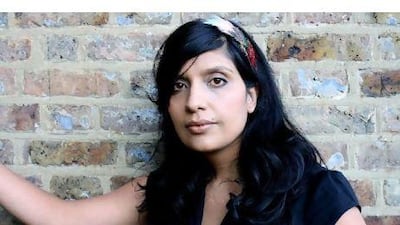When Nikita Lalwani was suddenly catapulted into the literary firmament thanks to an unexpected 2007 Booker Prize longlisting, it was the clarity of her debut, coming-of-age novel about a young British-Indian maths prodigy that really impressed. Some of her insight clearly came from experience - like her protagonist Rumi, Lalwani grew up in Wales, the daughter of Indian immigrant parents, and felt deeply that her heritage gave her a sense of identity. But there was something more thoughtful at play in Gifted: Lalwani had been preoccupied for years about making a documentary highlighting children from immigrant backgrounds encouraged to take exams early, to be "special".
Lalwani, born in Rajasthan but raised in Cardiff, has always approached her work via the gaze of the documentarist. And her concerns about the real-life stories told on our television screens are the basis for her new novel, The Village. Ray Bhullar and her two BBC colleagues arrive at an Indian open prison, ostensibly to observe and report on how this village of murderers - who live and work with their families - operates. But as the trio clash over their attitudes to the inmates, notions of who is depraved or morally corrupt become muddied.
The story is told with such a keen eye, it's no surprise to learn Lalwani has been musing on a similar real-life experience for 13 years.
"The series I was involved with was called Prison Weekly and it's somewhat thinly disguised in the book," she smiles. "Because I was Indian and could speak Hindi, it was very exciting to go to this open prison in Sanganer, near Jaipur - I was young and wanted to direct my own programme. But this place stayed with me and when I became a writer, I realised that fiction was the perfect way to write about all the things that had troubled me or intrigued me about it."
Lalwani is still fascinated by Sanganer. "It's incredible, everyone you meet has killed someone and you do think about the victims when you're there," she says. "And yet, in terms of rehabilitation it works so well." Her fictitious prison also helped her to investigate more fully another concern, which was the way such places and people are manipulated for television.
"Television documentary crews are so often dodgy, untrained modern-day anthropologists, don't you think? I mean, they document what's around them, but have a huge agenda. I admit, my experience was so ethically dubious - I was looking for conflict, I was looking for drama, and for that you do need tears so that people will care about that person on screen. There's a certain level of 'entertainment' expected, which most of the time you have to manufacture."
In The Village, Ray battles with this expectation, horrified that her colleagues are prepared to collude with a doctor to film one of the inmates learning he is HIV positive. And yet one of the real successes of the book is that Lalwani never resorts to righteous polemic. Ray is a complicated character: though trying to make the documentary she believes in, she is frequently blown off course by her own prejudices.
"She is an awkward read," says Lalwani. "Is she complicit, does she really care about the people in the prison? It's up for interpretation, and there's an important point there about whether we make or watch these programmes because we think they have the power to elicit change, or because we think they make good television."
And if that is a question for her British readers to grapple with, Lalwani admits that the book will be read very differently in India.
"The issues of identity, race and western voyeurism will obviously feel different," she says. "But I'm intrigued to see what the reaction is. It's interesting, I have this real desire to be accepted in India. I don't know why - it's like being in a complicated family relationship where you can't quite work out why you want validation, but you do."

